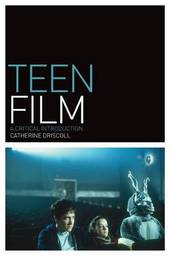
|
Teen Film: A Critical Introduction
Paperback / softback
Main Details
| Title |
Teen Film: A Critical Introduction
|
| Authors and Contributors |
By (author) Catherine Driscoll
|
| Series | Film Genres |
|---|
| Physical Properties |
| Format:Paperback / softback | | Pages:192 | | Dimensions(mm): Height 234,Width 156 |
|
| Category/Genre | Film theory and criticism |
|---|
| ISBN/Barcode |
9781847886866
|
| Classifications | Dewey:791.4365235 |
|---|
| Audience | | Tertiary Education (US: College) | | Professional & Vocational | |
|---|
| Illustrations |
10 bw illus
|
|
Publishing Details |
| Publisher |
Bloomsbury Publishing PLC
|
| Imprint |
Berg Publishers
|
| Publication Date |
1 June 2011 |
| Publication Country |
United Kingdom
|
Description
What makes a film a teen film? And why, when it represents such powerful and enduring ideas about youth and adolescence, is teen film usually viewed as culturally insignificant? Teen film is usually discussed as a representation of the changing American teenager, highlighting the institutions of high school and the nuclear family, and experiments in sexual development and identity formation. But not every film featuring these components is a teen film and not every teen film is American. Arguing that teen film is always a story about becoming a citizen and a subject, Teen Film presents a new history of the genre, surveys the existing body of scholarship, and introduces key critical tools for discussing teen film. Surveying a wide range of films including The Wild One, Heathers, Akira and Donnie Darko, the book's central focus is on what kind of adolescence teen film represents, and on teen film's capacity to produce new and influential images of adolescence.
Author Biography
Catherine Driscoll is Associate Professor of Gender and Cultural Studies, University of Sydney, and author of Girls: Feminine Adolescence in Popular Culture and Cultural Theory and Modernist Cultural Studies.
ReviewsTeen Film: A Critical Introduction breaks new and vital ground. Moving away from the America-centric bias of previous studies, it shows that the protean, complex, ever-changing image of youth on screen belongs to everyone, everywhere, no matter their age, gender, race or culture. A major achievement in film studies. * Adrian Martin, Monash University *
|